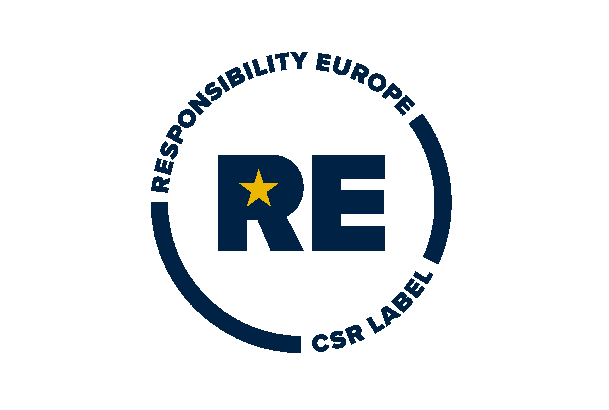The Crucial Truth about Employee Empowerment
The concept of employee empowerment has evolved considerably during the past years, in fact this evolution has gone hand in hand with the way employees see their relationship with their employer. Gone are the days of sixty hour weeks with no thanks or recompense, gone are the days of staying with one employer all your working life and above all gone are the days of accepting a professional stalemate situation. However, this does not mean that employee empowerment is all about trade unions and collective agreements, it is in fact a far less tangible and yet all the more crucial aspect of the way we expect to work: nowadays people expect to be treated humanely, they expect their competencies to be recognized and they want to be able to determine how they will set about tackling their tasks and meeting their objectives. Far more people than you would probably imagine want to see progress, this motivates them to work overtime and go that extra mile.
This may be attributed to the so-called “new ways of working”, but in actual fact it is common sense; why pay someone a good salary to do a job if you then intend to demotivate them by micromanagement and excessive supervision – by leaving them the “space” they need, they will reward you by being innovative and meeting deadlines. Frequently hi-tech Silicon Valley companies are quoted as the forerunners of this approach, to quote Forbes[1]
“As more and more leaders come to understand that employee empowerment is paramount to achieving organizational goals, they realize that people are their most strategic asset; all other organizational elements – technology, products, processes – result from the actions of workers. To that end, leaders are increasingly concerned about ensuring that their employees feel truly empowered to contribute to the company’s mission and drive value to customers.”
forbes.com
They hire staff on the basis of their creativity and ability to think out of the box, no one would dream of then putting them in a box!
This is all about accountability and engagement, how can employees be encouraged to go this extra mile? Jan Muehlfeit[2], ex boss at Microsoft, says that a leader needs to be authentic and fair, by managing teams on the basis of their strengths it is possible to encourage everyone to give their best. One should not underestimate the importance of inspiration, if a leader shows that (s)he really lives and works on the basis of a defined set of values – if they walk the talk – they remain credible and thus transmit a purpose to the people working for them. Conversely the result will be resignation and demotivation, two highly contagious frames of mind, which every company can well do without.
What Influence Does Your Corporate Culture Have?
Inevitably the company culture will play a crucial role in enhancing employee empowerment. A culture which encourages commitment, automatically provides fertile ground for “growing” empowered employees, who are happy to work within the framework of a flat hierarchy and who understand their role within this structure. The absence of middle management necessitates a far greater level of engagement among employees, so it is vital to align their ambitions with the expectations placed in them. By explaining the advantages of being able to take decisions and of greater personal accountability, even the “younger” generations will be prepared to step up and assume responsibility, accepting this as a means to obtain greater recognition of their contribution to the overall stability and ongoing success of the company. Longterm recognition of personal contributions and appreciation of how important a staff member is to the future of the company are crucial factors when trying to embed a policy of employee empowerment. Similarly these factors serve to enhance the feeling of belonging and of loyalty, which so many bosses say is lacking among their workforce. If newer members of staff see that they can aim for longterm recognition by accepting tougher challenges and stepping up to the mark, they will probably do so; many of them are looking for a sense in what they do. What is their potential contribution to the overall wellbeing of the company and is this appreciated? Whereas as monetary aspects may seem attractive on a short term basis, the prospect of greater autonomy and of really being able to make a difference may tip the balance in favour of staying with a company and not changing to a more rigid structure where suggestions are met with opposition and ideas suffocated in a long process of discussion and assessment. This in turn will serve to enhance the company’s overall image. Such employees become ambassadors for their employer; many companies benefit from this by offering internal incentives to staff who recruit successfully among their peers: what better way to attract new staff? They will surely not approach someone whom they would not like to work with on a longterm basis.
A further advantage of empowering employees is that it gives them a real vested interest in advancing their competencies and enlarging their horizons. They will not only be keen to suggest new methods, but also to share them with their colleagues and to enhance the overall effectiveness of the team. This may even result in an internal network of mentoring, as more experienced staff help younger colleagues to progress, or may encourage senior management to introduce a policy of coaching to help employees achieve their potential. Either way, such supportive structures will ensure that a positive environment takes root in which the individual contribution of each member of staff is recognized and enhanced. As a team dynamic develops, so employees will encourage each other to progress and will be proud of each others achievements as part of more global contribution to the project they are working on, the success of their department or even to the success of the company as a whole. Any employee who can identify with their employer will be prepared to go that extra mile and will strive to achieve something better. In these days of rapid change and digitalization, every employer needs to be able to count on such employees.
Link Empowerment to Your CSR Strategy
If your company already has a CSR strategy, it should be easy to align this approach to it, as staff wellbeing and professional advancement should anyway form part of the overall strategy. It may be possible to use the communication channels already in use to transmit further information about employee empowerment which entails two major advantages: firstly these channels are already accepted and respected by the workforce and secondly it would accelerate the overall time required to diffuse and embed information. By relying on trusted sources as a means of explaining the new strategy to their colleagues, rather like change ambassadors, will inevitably accelerate acceptance and reduce the risk of initial scepticism. It also serves a time tried means of gaining feedback about how the approach is working, thus making it possible to make any necessary modifications in good time before any misunderstandings or misconceptions have arisen. Collecting feedback is vital when any changes are being made, so when making such a farreaching change to the way you expect your employees to work, it becomes even more important. You may assume that they will welcome the change, but unless the advantages – for everyone – are clearly explained there is a risk that some members of staff will be less willing to adapt. For this reason, it is important to talk to everyone and ascertain what their understanding of empowerment is; check that this matches with the management view and explain as and when necessary. By investing a little more time in personal and meaningful communication, your employees will understand their role as part of the global picture, as well as why these changes are being made.
It is said that nowadays managers have to digest as much information in one week, as their peers used to digest in their whole lifetime one hundred years ago! It goes without saying that any viable method to reduce the burden on a manager will be welcomed, as it will leave him/her more time to concentrate on the tasks, which only they can really tackle. Employee empowerment should be seen in this context. If managers can rely on their staff to not only meet their deadlines but go beyond this in searching for innovative solutions and creative ways of moving forward, then they will surely recognize this as a win-win situation for everyone. To quote Howard Schultz of Starbucks “People want guidance not rhetoric. They need to know what the plan of action is & how it will be implemented. They want to be given responsibility to help to solve the problem and the authority to act on it”.
Let us help you!
WANT TO RECEIVE OUR LATEST THOUGHT LEADERSHIP CONTENT?
Related posts
 Digital Transformation and Change Management: Lessons shared in an event hosted by Cebi and MindForest
Digital Transformation and Change Management: Lessons shared in an event hosted by Cebi and MindForest
 Can Engagement Help Reduce Absenteeism?
Can Engagement Help Reduce Absenteeism?
 Daring to Lead Positive Transformation: What If you explored a disruptive approach to Change with Appreciative Inquiry?
Daring to Lead Positive Transformation: What If you explored a disruptive approach to Change with Appreciative Inquiry?
 Have you Examined the Advantages of Working with Data Analytics yet?
Have you Examined the Advantages of Working with Data Analytics yet?
 Daring to Lead Positive Transformation: How can you implement and manage positive change with success?
Daring to Lead Positive Transformation: How can you implement and manage positive change with success?




